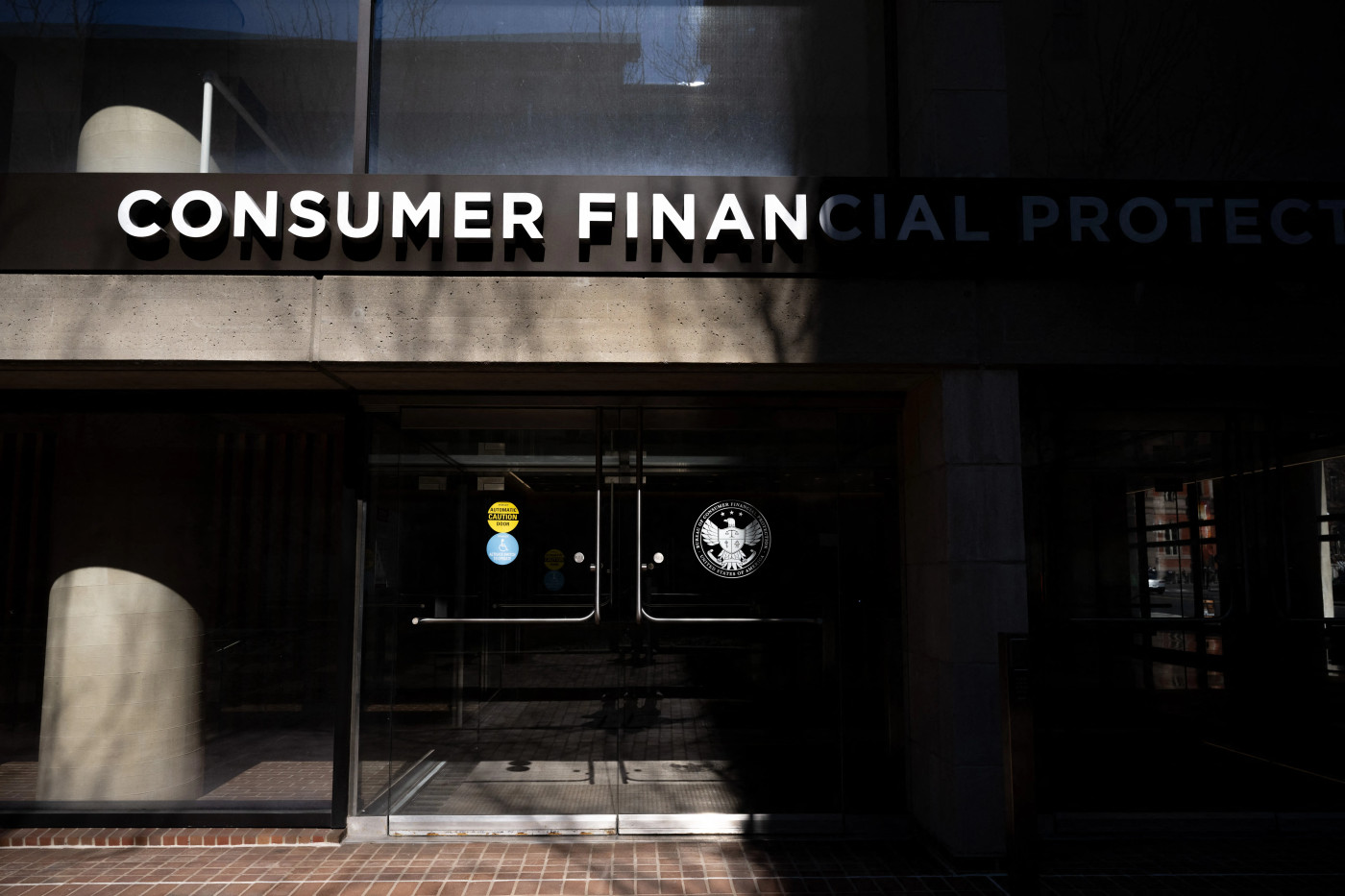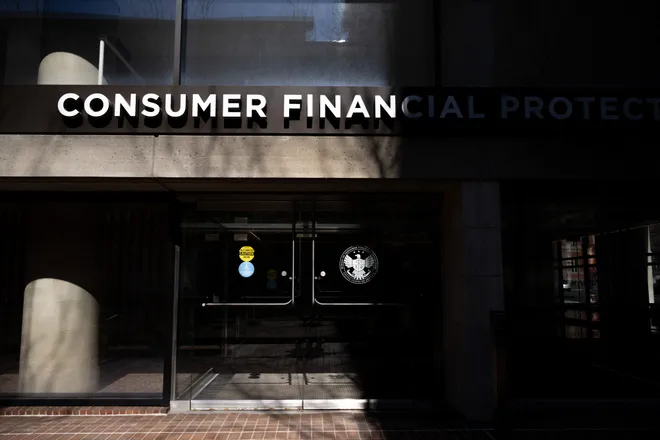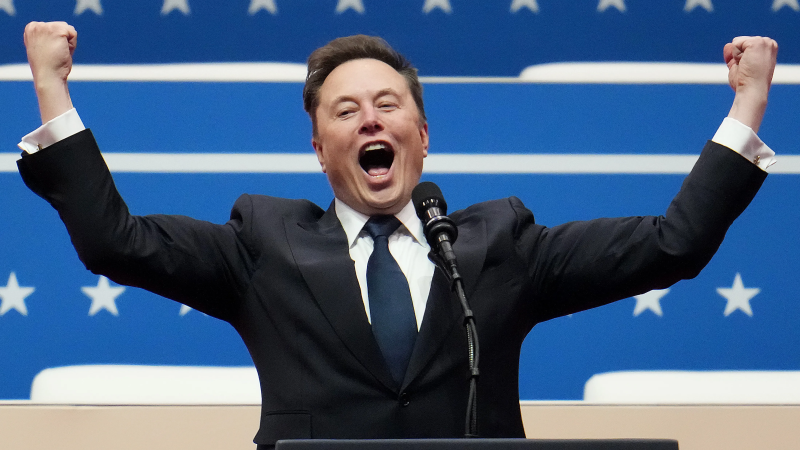
Is Trump hurting or helping Americans by freezing Consumer Financial Protection Bureau?
The Consumer Financial Protection Bureau is the latest government agency potentially on President Donald Trump’s chopping block.
Not only did Trump fire Rohit Chopra, who headed the independent agency, on Feb. 1, but over the weekend Russell Vought, the newly installed director of the Office of Management and Budget, directed the CFPB to stop working. The agency was ordered to stop work on proposed rules, to suspend the effective dates on any rules that were finalized but not yet enacted, to halt investigative work and not begin any new investigations and to cease supervision and examinations.
The CFPB’s homepage shows “404 error: page not found.”
If the CFPB gets axed, as some expect, watchdogs say consumers could pay dearly. And not just in cash.
“Without strong oversight and enforcement, consumers are particularly vulnerable to predatory practices, hidden fees, and data privacy violations,” said Delicia Hand, senior director of digital marketplace policy at Consumer Reports.
Earn rewards on your spending: See the best credit cards

What does the CFPB do?
The CFPB, originally the brainchild of Senator Elizabeth Warren (D-Massachusetts), was created after the Great Financial Crisis of 2007-2008 to protect consumers by ensuring “markets for consumer financial products are transparent, fair, and competitive,” the agency says.
In the more than a decade the CFPB has existed, the agency lists as among its achievements winning back $17.5 billion for Americans, imposing $4 billion in civil money penalties on companies and individuals that violate the law, providing 50.1 million users of its website answers to their financial questions, and passing on 4 million consumer complaints to companies on their behalf.
In the last couple of years, the agency has also fought against so-called junk fees, including limiting overdraft fees and credit card late fees. It also finalized rules to remove medical debt from credit reports. The moves could be on indefinite hold now.
Why might people want to shut down the CFPB?
The CFPB has faced opposition from its beginnings, with various members of Congress decrying the agency’s structure which they say allows it to operate “without basic oversight and accountability,” according to a statement made by the Financial Services Committee in 2013.
The CFPB is unique among federal agencies in that its funding comes directly from the Federal Reserve based on a request from the bureau's director. Congress appropriates annual funds for almost all other federal agencies.
The CFPB director “has little accountability to the Administration, and even less to Congress; his budget is secure,” said Subcommittee Chairman Patrick McHenry (R-NC) in 2013. As a result, there’s a “substantial risk of waste, fraud and abuse,” the committee said.
The agency's current funding of $711.6 million is "excessive," Vought said when he announced the CFPB freeze. "This spigot, long contributing to CFPB's unaccountability, is now being turned off."
Banking and financial groups have also accused the agency of putting politics over people.
“In countless instances, the CFPB regularly strained—or flat out disregarded—the clear language of its legal authority to advance blatant political goals,” said the Consumer Bankers Association. “Using faulty data and facts to support its rulemakings, it failed to consider the true impact to consumers of its rules.”
As a result, “millions of consumers could be deprived of financial tools and access to credit— escalating their risk of being debanked,” it said.
For example, the cap on credit card late fees meant to help consumers could backfire, some experts warned.
“The reality is that (capping late fees) will also increase the likelihood that banks raise other types of fees to make up for the lost revenue,” said Matt Schulz, chief credit analyst at financial products comparison site LendingTree.
Getting what you earned:Getting paid early may soon be classified as a loan: Why you should care

What happens now to CFPB?
For now, the agency is in limbo, but Democrats are fighting to keep it. They say Vought doesn't have the authority to dismantle the agency that was created by Congress and signed into law by President Barack Obama.
"The CFPB is protected by law and we will fight to ensure it can continue to fight for consumers," wrote Sen. Chris Van Hollen (D-Maryland) on X.
Without the CFPB, financial institutions and banks could take advantage of consumers, make them pay more and sell their data, Hand said.
"Consumers face an increasingly complex financial marketplace dominated by AI, big tech, and new digital products, making the CFPB’s work more critical now than ever,” she said.
Even if Democrats can save CFPB, it may not be the same agency as it has been in the past four years. Financial and banking groups are pushing for changes.
“In the many cases where the CFPB has issued policies without consulting the public, or reached beyond what they are authorized by Congress to do – especially in those instances where consumers stand to lose access to or pay higher costs for credit – new leadership at the CFPB can cut away hundreds of pages of unnecessary regulation almost instantly,” the CBA said.
Medora Lee is a money, markets, and personal finance reporter at USA TODAY. You can reach her at [email protected] and subscribe to our free Daily Money newsletter for personal finance tips and business news every Monday through Friday morning.

